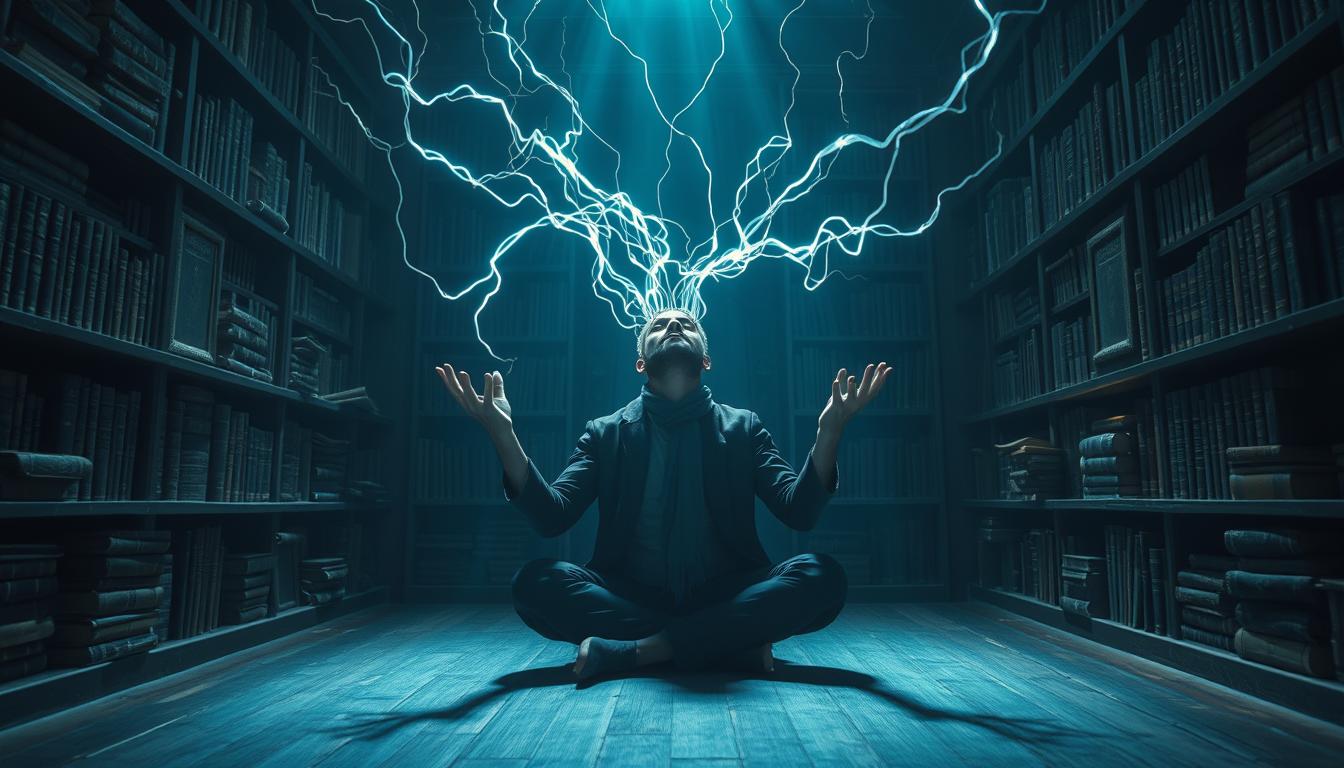Have you ever wondered if it’s possible to know the past in ways beyond ordinary memory? Retrocognition, the ability to perceive past events through extrasensory means, has fascinated people for centuries. Unlike precognition, which deals with future events, retrocognition focuses on what has already happened. This concept has appeared in popular culture, from the Pensieve in Harry Potter to Clockwork in Ben 10, sparking curiosity and debate.
However, verifying such claims is a challenge. Skeptics argue that retrocognition often relies on existing knowledge rather than new insights. Historical cases, like the Moberly-Jourdain incident, are met with skepticism due to the malleability of memory. The scientific community remains divided, with many dismissing it as pseudoscience due to a lack of reproducible evidence.
This article explores the mysterious world of retrocognition, examining historical accounts and critical arguments. Join us as we delve into the intriguing intersection of memory, time, and paranormal perception.
Key Takeaways
- Retrocognition involves perceiving past events through extrasensory means.
- It differs from precognition, which focuses on future events.
- Historical cases like the Moberly-Jourdain incident remain controversial.
- Verifying retrocognition claims is challenging due to reliance on existing knowledge.
- The scientific community remains skeptical due to a lack of reproducible evidence.
Introducing Retrocognition and Its Historical Roots
The idea of accessing past events through extraordinary means has intrigued humanity for ages. This phenomenon, often referred to as retrocognition, involves perceiving historical moments beyond ordinary memory. Unlike precognition, which focuses on the future, retrocognition delves into what has already occurred.
Definition and Origins
Retrocognition stems from the Latin words “retro,” meaning backward, and “cognitio,” meaning knowledge. It is often associated with extrasensory perception (ESP) and is considered a subset of psi phenomena. Frederic W. H. Myers, a pioneer in parapsychology, first coined the term in the late 19th century. He described it as the ability to gain information about past events without relying on conventional memory or historical records.
This concept differs from clairvoyance, which involves perceiving distant or hidden objects, and precognition, which deals with future events. Retrocognition focuses solely on the past, making it a unique area of study in parapsychology.
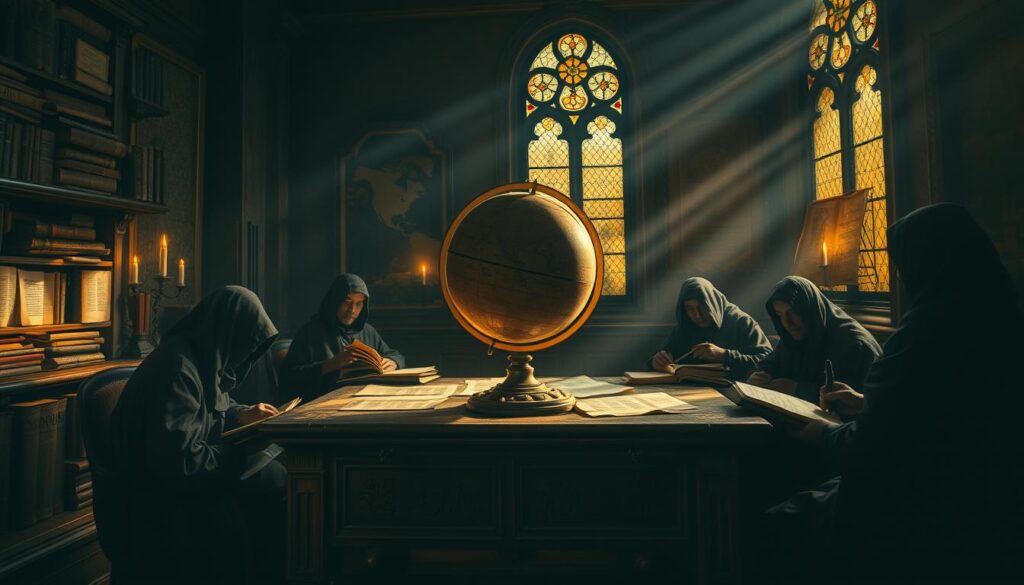
Notable Historical Accounts
One of the most famous cases of retrocognition is the Moberly-Jourdain incident. In 1901, two British women, Charlotte Anne Moberly and Eleanor Jourdain, claimed to have experienced a vision of 18th-century Versailles while visiting the palace. They described seeing people in period clothing and even interacting with historical figures like Marie Antoinette.
While skeptics argue that their experience was influenced by suggestion or imagination, the incident remains a cornerstone in retrocognitive studies. It highlights how memory and perception can intertwine to create vivid experiences of the past.
Retrocognition has also found its way into art and literature. Works like Harry Potter and Ben 10 have depicted characters accessing past events through magical or technological means. These portrayals have shaped public perception, blending fiction with the intriguing possibilities of retrocognitive phenomena.
| Historical Case | Description | Impact |
|---|---|---|
| Moberly-Jourdain Incident | Vision of 18th-century Versailles | Pioneering case in retrocognitive studies |
| Dunne’s “An Experiment with Time” | Exploration of precognitive dreams | Influenced literary and philosophical thought |
| Cultural Depictions | Art and literature like Harry Potter | Shaped public understanding of retrocognition |
Over time, retrocognition has evolved from a fringe concept to a subject of serious inquiry in parapsychology. Historical documentation and case studies have played a crucial role in shaping its modern understanding. By examining these accounts, we gain insights into how memory and information from the past influence our perception of time and reality.
Scientific Skepticism and Verification Challenges
Can we trust our perception of the past, or is it influenced by unseen factors? The study of accessing past events through extraordinary means faces significant skepticism. Scientists often question the validity of such claims due to the lack of reproducible evidence and the influence of memory bias.
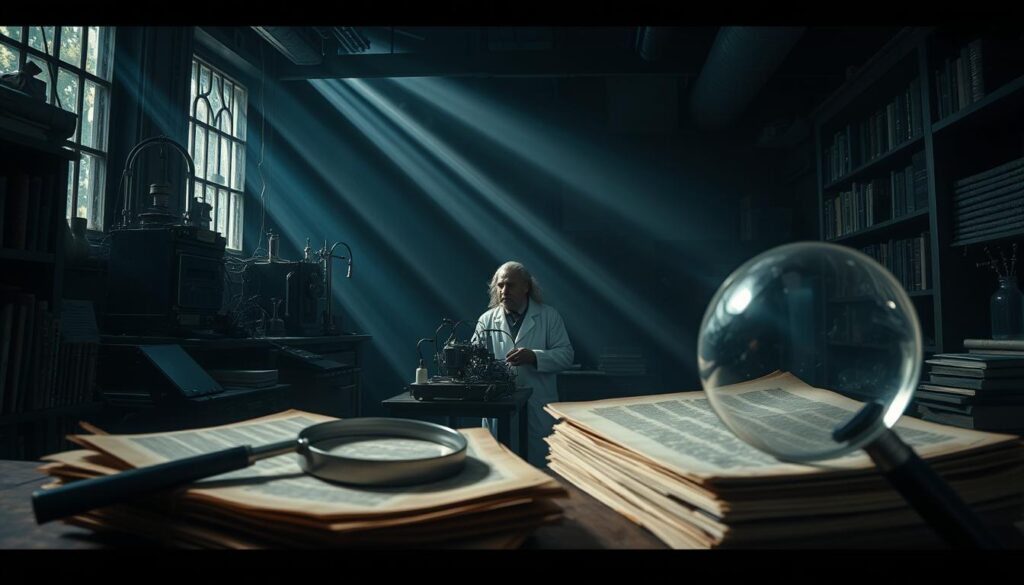
Experimental Limitations in Parapsychology
Parapsychology struggles with experimental design. Many studies rely on subjective experiences, making it hard to verify results. For example, tests involving psychometry—the ability to perceive an object’s history—often lack control over external factors. This raises doubts about the accuracy of the findings.
Another issue is the challenge of isolating paranormal perception from ordinary memory. Users of such experiences might confuse what they already know with new insights. This overlap complicates the process of proving genuine retrocognitive abilities.
Memory Bias and Documentation Issues
Memory plays a significant role in how we perceive the past. Studies show that personal experiences can be influenced by pre-existing knowledge. For instance, a person might recall details from a historical event they’ve read about, mistaking it for a paranormal vision.
Documentation also poses a problem. Historical records are often incomplete or biased, making it difficult to verify claims. Critics argue that perceived knowledge from the past could simply be a reconstruction of documented facts rather than genuine retrocognition.
The ongoing debate between skeptics and proponents highlights the need for rigorous methodologies. Until more reliable evidence emerges, the scientific community remains divided on the validity of these extraordinary claims.
Retrocognition: The Impossible Quest for Past Knowledge
Exploring the past through extraordinary means raises questions about the limits of human perception. Unlike clairvoyance, which focuses on present or future events, retrocognition is a unique ability that delves into what has already happened. This distinction makes it a fascinating subject in the field of parapsychology.
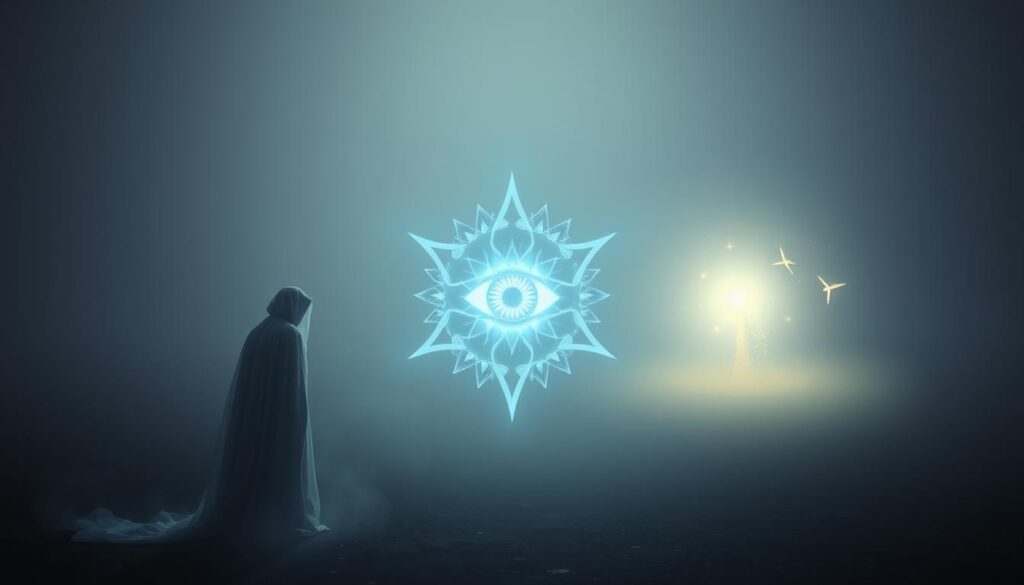
Comparisons with Clairvoyance and Precognition
Retrocognition is often compared to clairvoyance and precognition, but its temporal focus sets it apart. Clairvoyance allows individuals to perceive hidden or distant objects in the present, while precognition involves glimpses of the future. Retrocognition, on the other hand, is a “past event reader,” providing insights into historical moments.
For example, in literature, characters like Harry Potter use magical tools to revisit past events. These portrayals highlight the perceived power of retrocognitive visions. However, skeptics argue that such depictions blur the line between fiction and reality, making it harder to validate these claims scientifically.
In parapsychology, retrocognition has a rich history of debate. Researchers often struggle to differentiate genuine retrocognitive impressions from pre-existing knowledge. This challenge raises questions about the reliability of such experiences and their place in scientific study.
Despite its intriguing premise, retrocognition remains a controversial topic. The scientific community continues to question its legitimacy, emphasizing the need for rigorous methodologies to verify these extraordinary claims. As we explore this fascinating phenomenon, we uncover the complexities of memory, time, and human perception.
Popular Culture and Fictional Representations
From comic books to blockbuster films, retrocognitive themes have captivated audiences worldwide. These portrayals often blend mystical powers with scientifically questionable phenomena, creating a link between imagination and reality. Today, characters with the ability to revisit the past continue to inspire fascination and debate.
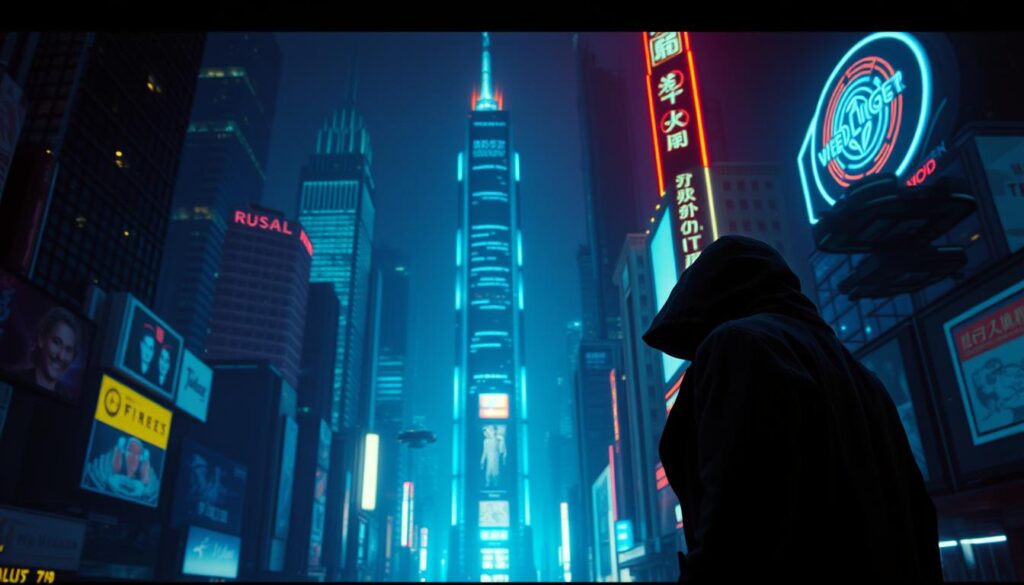
Comic Book and Television Portrayals
Comic books and TV shows have long explored retrocognitive abilities. In *Ben 10*, the character Clockwork can manipulate time, offering a retrospective view of past events. Similarly, Leone Abbachio’s Stand, Moody Blues, from *JoJo’s Bizarre Adventure* replays past actions with precision. These depictions highlight the creative ways media interprets the concept of accessing the past.
Shows like *Harry Potter* use magical tools like the Pensieve to explore memories in vivid detail. These portrayals not only entertain but also spark curiosity about the place of such abilities in our understanding of time and memory.
Literary and Cinematic Interpretations
Literature and cinema have also embraced retrocognitive themes. In *Final Fantasy XIII-2*, characters like Yeul can see multiple timelines, blending foresight with a retrospective vision of events. Films often use these abilities to drive plotlines, creating a sense of mystery and intrigue.
These fictional representations often contact modern audiences by addressing universal questions about memory and time. They also post challenges to the scientific community, encouraging further exploration of these phenomena.
By blending creativity with speculative science, popular culture keeps the fascination with retrocognitive abilities alive. These stories remind us of the enduring allure of the past and its mysteries.
Debating the Logic of Verifying the Past
How can we truly verify events from the past without bias or error? This question lies at the heart of the debate surrounding extraordinary claims of accessing historical moments. Skeptics argue that such experiences often rely on pre-existing knowledge rather than genuine insights. Let’s explore the challenges and paradoxes in verifying these claims.
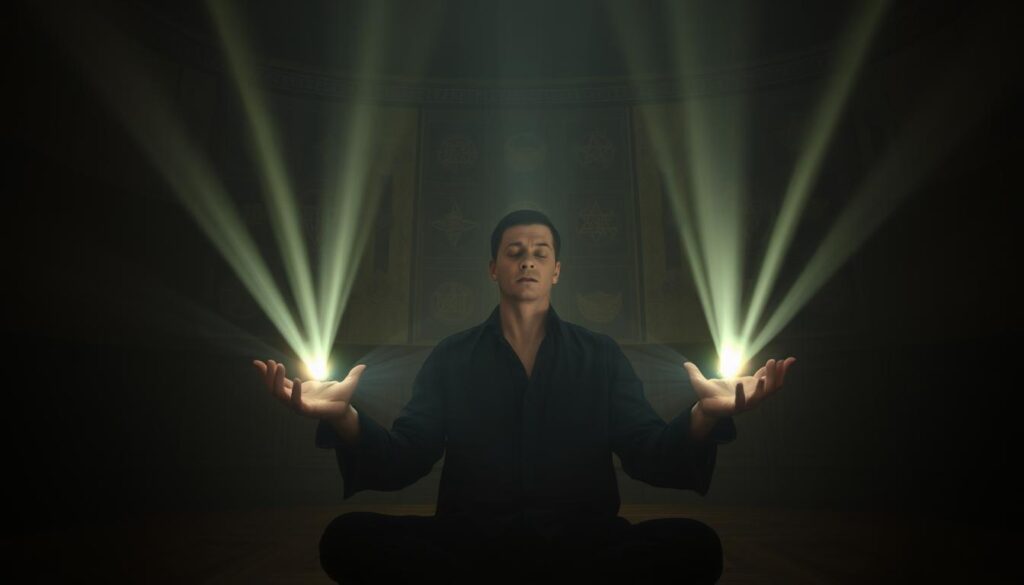
Skeptical Arguments Against Retrocognition
Critics highlight several issues with verifying retrocognitive experiences. One major concern is the overlap with extrasensory perception. For example, a person might mistake a vivid memory for a paranormal vision. This confusion makes it difficult to isolate genuine retrocognitive abilities.
Another argument focuses on the malleability of memory. Studies show that personal experiences can be influenced by prior knowledge. In the Moberly-Jourdain incident, the women’s vision of 18th-century Versailles could have been shaped by their familiarity with historical records.
Skeptics also point to the lack of reproducible evidence. Without consistent results, it’s hard to validate these claims scientifically. As one researcher noted, “The absence of a reliable test undermines the credibility of such phenomena.”
Experimental Design and Verification Paradoxes
Designing experiments to verify retrocognitive abilities is fraught with challenges. One paradox is the potential influence of precognition. A subject might unconsciously use precognitive abilities to pass a test, making it appear as though they accessed the past.
Another issue is the role of prior knowledge. Even well-constructed experiments can fail if the subject has access to information about the object in question. This raises questions about the validity of the results.
Psi abilities further complicate the process. A subject might use psi to mimic test validity, creating a false sense of proof. As one study noted, “The interplay between different forms of extrasensory perception makes it nearly impossible to isolate retrocognition.”
- Critics argue that retrocognitive experiences often rely on pre-existing knowledge.
- Memory bias and the malleability of historical records complicate verification.
- Experimental designs face paradoxes, such as the influence of precognition.
- Prior knowledge and psi abilities can subvert test results.
In summary, the debate over verifying the past highlights the complexities of human perception and memory. Without rigorous methodologies, claims of retrocognitive abilities remain controversial and difficult to prove.
Conclusion
The mystery of accessing the past through extraordinary means continues to spark debate and curiosity. From its historical roots to scientific challenges and cultural reflections, retrocognition remains an enigma. Proving such abilities without conflating them with clairvoyance or other psi phenomena is inherently difficult.
Scientific skepticism highlights the content of these claims, often questioning their validity due to memory bias and lack of reproducible evidence. Yet, the awareness of these phenomena persists, blending historical accounts with modern interpretations.
While the universe of parapsychology continues to explore these ideas, the logical challenges of verification remain. Encouraging an open thought process is essential, but so is balancing skepticism with curiosity.
In the end, the study of the past through an extrasensory lens leaves room for both wonder and doubt. It reminds us of the complexity of human perception and the endless quest to understand our place in time.

